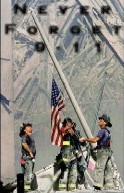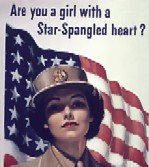Clarity & Resolve: A peaceful place, or so it looks from space.
Common Sense Runs Wild
Guide to Midwestern Culture
Instapundit.com
Jo's Cafe
Little Green Footballs
Lost In Lima Ohio- The Blog
MY Vast Right Wing Conspiracy
Michelle Malkin
Moonbattery
Mr. Kurtz's Neighborhood
My Life In An Egg Roll
Pirate's Cove
Riehl World View
Sigmund, Carl and Alfred
Six Meat Buffet
Something... and Half of Something
THE STEEL DEAL
TMH’s Bacon Bits
The Anti-Idiotarian Rottweiler
The Bower
The Donegal Express
The Ebb & Flow Institute
The Gray Tie
The Jawa Report
The Nose On Your Face
The Squamata Report
The Therapist
The Wide Awake Cafe
Theater of the Soul
Vince Aut Morire
WuzzaDem
Your Republic
basil's blog
blonde sagacity™
phin's blog
July 28, 2005
Stop the ACLU! Blogburst - Say Cheese!
Rich Lowry has a great post up at National Review regarding Cameras and Terrorism.
The four would-be suicide bombers of the botched July 21 attacks in London have a big problem. They were caught on videotape. Their images have been broadcast in Britain and around the world, making their apprehension astronomically more likely than if they had escaped undetected.
And, as Rich says, "we have security cameras to thank."
London has half a million of them. According to one estimate, a person wandering around London will be filmed 300 times in a day. The city is a pioneer of a trend toward video surveillance that is also sweeping the United States and provoking howls from civil libertarians whose internal clocks are set to make a reference to 1984 every 15 minutes or so. Given the choice, apparently, they would prefer not to have the video of the July 21 bombers, which is an indication of the suicidal otherworldliness of ACLU-style civil libertarianism.
The biggest complaint from those who do not want security cameras is the argument that it would be an invasion of privacy, that it would be intrusive. Rich hits it smack dab on the head... How is it an invasion of privacy when you are in a public place, where a dozen or more witnesses can see your every activity, every move? There are security cameras at ATMs, in banks, in many businesses (including the building I work in). If we had them in more public areas, not only would it deter crime, but those criminals dumb enough - or on a suicide mission (i.e. TERRORISTS) - could at least be caught on tape, which would make it easier to spot them, arrest them and convict them.
If they can’t brandish the Fourth Amendment, civil libertarians get down to practical policing and claim that cameras don’t really do anything to prevent crime; they only occasionally help solve crime after the fact. Even if this were true, solving one terror attack alone — and therefore perhaps unraveling networks that would attack in the future — makes the cameras worth it.
Cameras won’t deter suicide bombers — what will? — but they can tamp down other criminal activity. Cameras in Britain are credited with discouraging the IRA bombing campaign in the 1990s. On a less serious front, San Francisco — one of many jurisdictions, including New York, Houston and New Jersey, that have cameras in their train systems — saw vandalism drastically decline on subway cars after the installation of surveillance cameras.
Reducing crime takes the parks and the cities away from the criminals and gives it back to the citizens. I think of our own "Central Park Mall" here in Omaha. It is overrun by vagrants, criminals, sex offenders and the like. More security cameras in strategic places would deter these criminals from setting up virtual residence in the park and more residents could actually enjoy the amenities the park promises. I certainly don't go down there after dark and I especially wouldn't be there alone after dark or take my children there. Sad, isn't it?
Then there is the last resort of civil libertarians. When no real harm can be demonstrated, they always discern a subtle “chilling effect.” “When citizens are being watched by the authorities,” says Barry Steinhardt of the American Civil Liberties Union, “they are more self-conscious and less freewheeling.” But urban areas, where the cameras are proliferating, are not notably bastions of inhibited behavior. City Journal’s Heather Mac Donald, who is nation’s foremost critic of the excesses of the ACLU, writes, “The only people whom public cameras inhibit are criminals; they liberate the law-abiding public.” When they move a camera out of a troubled neighborhood, Chicago police now get complaints from neighbors, who want pimps and drug dealers to be decidedly inhibited.
You are spot on Ms. MacDonald.
It's very easy to see (as emphasized in the quote above and in looking at the ACLU's website) what their opinion is on surveillance cameras. In a hearing to discuss enhancing D.C.'s security camera network, mere months after 9/11, Johnny Barnes, the Executive Director of the American Civil Liberties Union of the National Capital Area, testified. He cited the following reasons why a stronger surveillance camera network should not be deployed in D.C.:
1. Surveillance cameras are not effective at fighting crime.
Hmmmmm....there seem to be many instances that this is proven false (Rich names at least one instance in San Francisco as well as complaints when cameras were moved in Chicago, apparently causing the return of criminal activity once the camera was removed).
2. Surveillance cameras reduce resources for placing police officers into neighborhoods where they are needed.
They state that putting more cameras in would cause a need to pull officers off the street; therefore, decreasing police presence which would increase potential for crime. Huh?
3. Surveillance cameras undermine individual privacy and are inimical to the American way of life.
Typical ACLU. So, they bring up cameras at stop lights. They say that while that has its own problems, at least the cameras are used to focus on one type of offense. A network of cameras would be too intrusive as it would "track daily routines" versus specific criminal activity. They say it would also undermine individual privacy and could deter, as an example, a citizen's desire to demonstrate on the mall. So if they aren't breaking any laws, why worry? It's a public place that a person's activities can be observed by numbers of people! Besides, isn't the point of demonstration for a cause to stand up and BE NOTICED?
4. Surveillance cameras should not be contemplated without obtaining the explicit permission of those they impact. Permission was not granted in the District of Columbia.
I can't help but quote directly from their testimony: "Americans value the right to be anonymous in a big city. We value the right to go about our business without the sense that the government is watching us as if we were going to break the law." Um, excuse me please. I value feeling safe in my own country. I'll bet criminals value the "right" to be anonymous in a big city. Why do you think we have so many "Wanted" posters, or Crimestopper segments on TV?
5. Surveillance cameras are subject to great abuse.
That's why you put policies and procedures in place - DUH.
So what came of the DC security camera situation 3 years ago? Security cameras had been installed, but guidelines and procedures were established that limited the use of the cameras.
Those guidelines, which the council approved, call for the cameras to be used only to monitor traffic, large demonstrations and city emergencies. The regulations also say that the cameras can be installed only in public spaces where people would have a reasonable expectation of being videotaped, and they bar police from using the devices to watch for street crime. that did not allow the police to operate them 24/7.
When the London bombings occurred, the question came up "What are we doing to prevent terrorist activity in DC?" Again the recommendation has come up to increase the use of security cameras in order to deter varying levels of criminal activity, and again, the "issue" of privacy has resurfaced. Let the games begin again.
*****
Please stop by "Stop the ACLU!" for their weekly Blogburst!
Show Comments »
excellent job! why don't you go to my site, and go to the login button up top, and register to be a writer? Thanks, Jay
Posted by: Jay at July 28, 2005 09:59 AMAnother Superior Effort Merri.
Posted by: Gribbit at July 28, 2005 07:52 PMThanks to both of you. :-)
Posted by: Merri at July 28, 2005 09:32 PMHi Glenn. I like your site.
Hey, there's no such a thing as a "meme". It's a concept based on a fundamental misunderstanding of the mind.
all the best,
Bev
Posted by: Beverley Eyre at August 5, 2005 09:48 PMUm....didn't know my name was Glenn and didn't know this post was about a meme. Oh well, perhaps I've gone insane?
All the best to you, too, Bev...
Posted by: Merri at August 6, 2005 09:59 AM-
- Merri on Stop the ACLU! Blogburst - Say Cheese!
- Beverley Eyre on Stop the ACLU! Blogburst - Say Cheese!
- Merri on Stop the ACLU! Blogburst - Say Cheese!
- Gribbit on Stop the ACLU! Blogburst - Say Cheese!
- Jay on Stop the ACLU! Blogburst - Say Cheese!
-
- Students Disciplined for Wearing American Flag Shirts to School
- Heartless Jerks
- This Won't Look Good on a Resume
- They're Children!
- Baked Haddock with Cheesy Crunch Topping Recipe
- 24....the Reason for Heart Problems
- Where's Your Hostess?
- ...just when I think I Can't Be Any More Appalled
- Give Me a Terrorist and I'll Raise You A Traitor
- Children Shouldn't Have to Suffer Like This...
-
- ACLU Musings (35)
- Bauer (6)
- Blogging Musings (32)
- Cotillion Musings (28)
- Crime and Terroristic Musings (1)
- Disaster Relief (2)
- Eat, Drink & Be Merri (47)
- Fun Musings (26)
- Good Causes (3)
- Hollyweird Musings (2)
- Idiotic Musings (12)
- Life's Musings (63)
- Murderers (14)
- Musings of Merri (13)
- Non-Adults in Charge (6)
- Non-Parents (13)
- Political Musings (22)
- Rachael Ray Musings (25)
- Sex Offenders & Child Molesters (30)
- Social Musings (34)
- White Trash Wednesdays (40)
-
 My blog is worth $198,153.54.
My blog is worth $198,153.54.
How much is your blog worth?
My Bloginality is ENFJ!!!
Syndicate this site (XML)
Powered by
Movable Type 2.64















